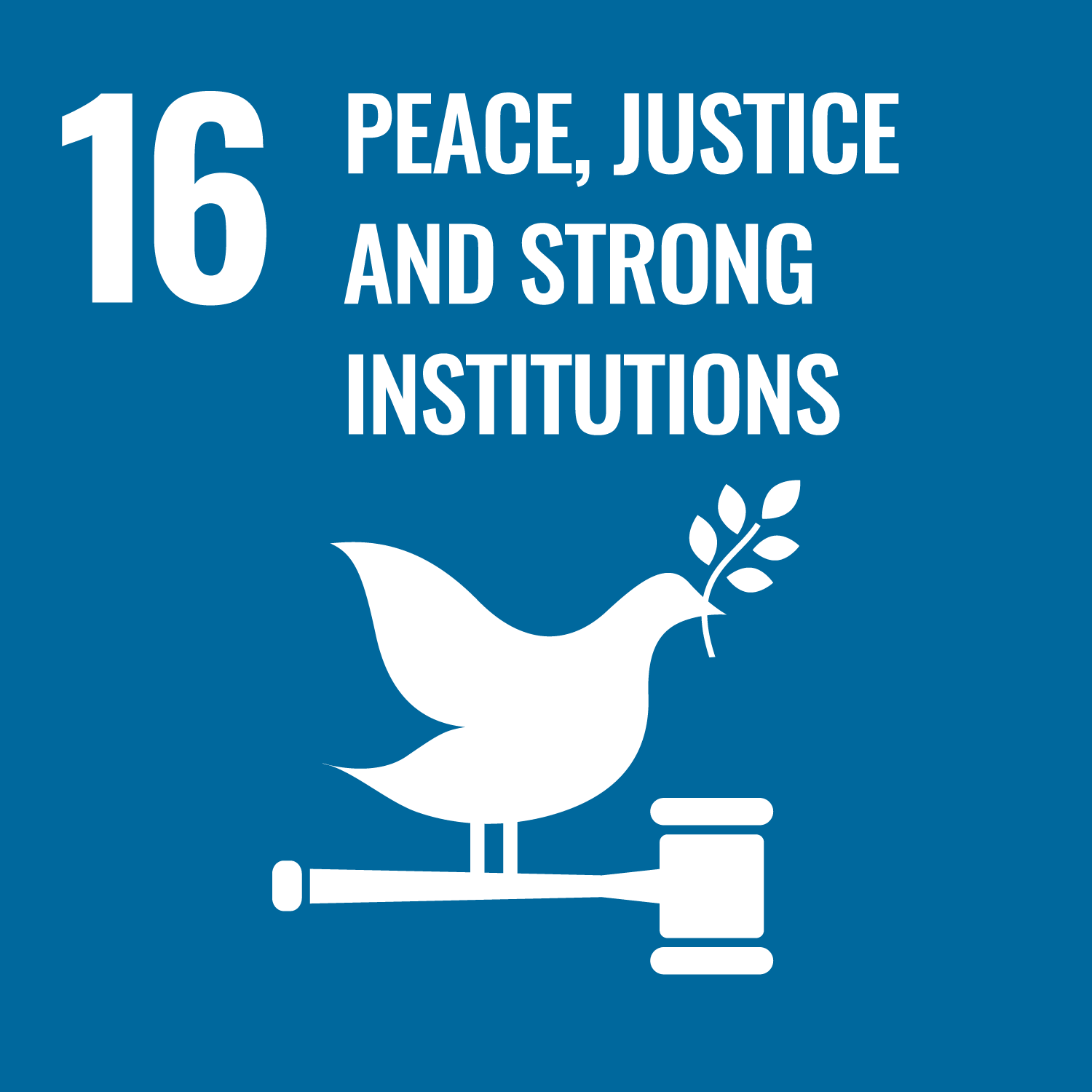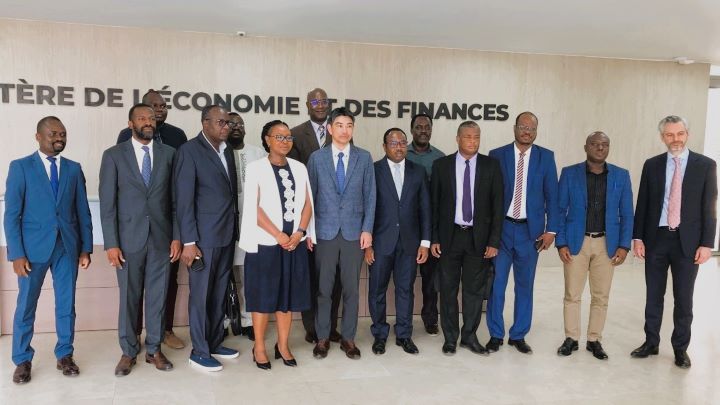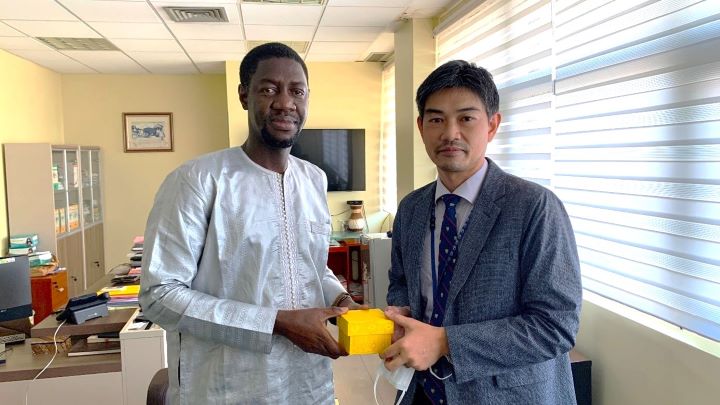Charm of French-speaking African Countries


2025.04.28
-

- Koichi KATO Director Senior Africa Division 4 Africa Department
I started learning French when I joined JICA in 2002 and have worked mainly in what is called French-speaking Africa. I would like to introduce the charm of French-speaking African Countries.
Africa is home to 54 countries with a population of approximately 1.5 billion [*1]. This population is projected to grow to about 2.5 billion by 2050, and the share of the African population in the world population is expected to exceed 25%. With an average age of about 25 years, the presence of young Africans in the world will become even greater in the near future.
French-speaking Africa is also among the African countries that are in the direction of such population expansion. However, it is difficult to be precise when it comes to the specifics of which region French-speaking Africa refers to.
For example, there are 19 countries in Africa where French is the official language. However, there are also countries that do not have French as an official language but have French as the language of administration (e.g., Burkina Faso), so it seems necessary to look at French-speaking Africa from a broader perspective.
Some countries where French is not widely spoken are members of the International Organisation of La Francophonie[*2], which is an umbrella organization of countries and regions that share universal values such as democracy and human rights and French language. In Africa, 31 countries are members, with a population of approximately 500 million, and some analyses suggest that the population will reach approximately 900 million by 2050. The number of people who actually speak French is currently estimated to be just over 300 million worldwide, but not all citizens of the member countries of the International Organisation of La Francophonie speak French.
For example, in Ghana, which recently became a full member of the organisation, the percentage of the population that speaks French is currently about 1%. In the future, the percentage of French speakers may increase through exchanges with other surrounding French-speaking countries such as neighboring Cote d'Ivoire.

Group photo taken in a French-speaking African country: the author is in the center.
One of the most distinctive features and attractions of French-speaking Africa is the influence of France. This influence can be seen in the food culture and even in the administrative system.
No matter which French-speaking African country you visit, the food is very good. French bread is readily available, inexpensive and delicious. French wine is also prevalent, and it is no exaggeration to say that there is no country without French restaurants.
Traditional dishes from French-speaking Africa are also very tasty. Thieboudienne in Senegal and Attiéké in Cote d'Ivoire are even recognized by UNESCO as Intangible Cultural Heritage. However, it is not clear until this was also developed under French influence.
When I travel to Cote d'Ivoire on business, I often have the opportunity to try Attiéké, a delicious dish made from cassava, that we eat with fish, chicken or other meat and also with source. If you have a chance to try it, please do not miss it.

Typical ingredients from Ivory Coast : Acheke
French-speaking Africa is also influenced by France in its administrative systems.
Administrative documents are often prepared according to a typical French-language administrative document format.
The system of government is also similar to the French system . For example, France has the position of Minister of State, which generally ranks below the Prime Minister and above the Ministers, and it is common to find cases in French-speaking Africa where the title of Minister of State is assigned to key ministerial posts.
French-speaking Africa is thus influenced by France, but I think one of the interesting aspects is to find the fusion of these two elements, the French influence and the uniqueness of Africa.
I have never studied in France and learned French in Senegal, where I worked twice. Therefore, people sometimes point out that my French has a Senegalese accent.
French in French-speaking Africa has a peculiar accent, and I feel that each country has a different accent. Of course, the degree of accent varies from person to person, but just listening to this accent is one of the interesting aspects of working in French-speaking Africa. Now, just by listening to a few French pronunciations, I can guess whether a person is from Senegal, Burkina Faso or Cameroon.
In addition to the accent, there also seems to be a difference in the way the words are used. For example, many people know the word " Bonsoir ", which means "Good Evening in English. As someone who grew up in Japan, I have an ingrained sense of saying "Bonsoir" when meeting someone after the sun has set and it is dark. It seems to be the same in France.
However, in Burkina Faso, a French-speaking African country, when you meet someone after 12:00 noon, you almost certainly greet them with "Bonsoir. At first, I was puzzled by the idea of saying "Bonsoir" in the strong sunlight, but now I try to greet people loudly in broad daylight with "Bonsoir!"
Just by looking at these examples, one can get a sense of how close and how far France and French-speaking Africa are. There are also exceptional cases, depending on the personality and background of each person you meet in French-speaking Africa, which is also a part of the region's charm.
In Japan, English may be a more familiar foreign language than French, but I would be very happy if this my short blog provided an opportunity for everyone to experience Africa from the perspective of French and French-speaking Africa.

Photo taken when I left Senegal with the then Undersecretary of the Senegalese Ministry of Health, with whom I had honored to often exchange views.
scroll